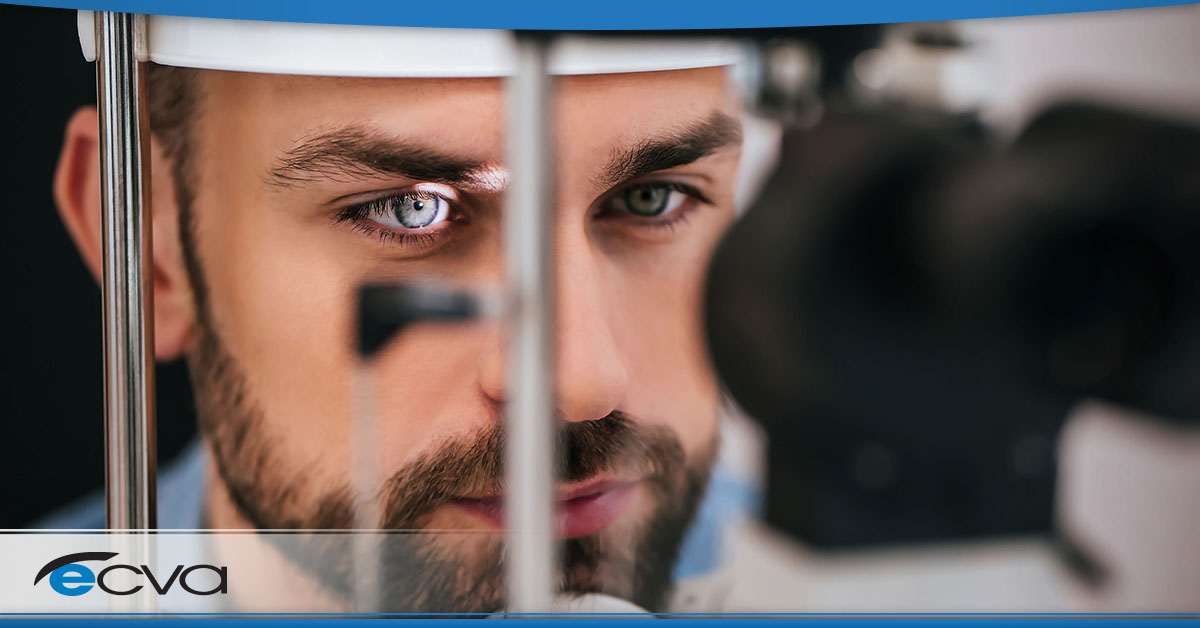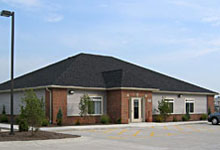Glaucoma is a serious eye condition where fluid builds up in the eye, causing damage to the optic nerve. If not treated promptly, glaucoma can cause permanent vision loss, if not total blindness. That’s why early detection is crucial.
By learning about the symptoms of glaucoma, you can take action quickly, reducing the odds of permanent vision loss. Here’s a look at common signs of glaucoma, as well as when to see your eye care provider.
The Signs and Symptoms of Glaucoma
Like many eye conditions, there are several symptoms that could indicate glaucoma. Here is an overview of the primary symptoms people experience.
Halos
Seeing halos around light sources could indicate glaucoma, as well as other eye conditions like cataracts. Additionally, they can be side effects from surgery, injury, or symptoms of several different eye diseases.
With glaucoma, the halos occur due to fluid buildup in the eye. As the fluid increases, it distorts incoming light, creating the bright circles known as halos.
Vision Loss
Vision loss in one eye or the development of a blind spot in your visual field could be a symptom of glaucoma. Even if the vision changes are small, the situation is urgent. Glaucoma’s impact on the optic nerve is gradual. By getting it checked quickly, you reduce the odds of permanent or increasingly severe vision loss.
Cloudiness
A cloudy-looking eye is another symptom of glaucoma. Glaucoma is a condition characterized by fluid buildup in the eye. When fluid increases, the pressure in the eye rises. Once the pressure reaches a certain point, fluid can get pushed into the cornea, giving it a noticeably cloudy appearance.
Light Sensitivity
Since glaucoma can increase pressure in the eye, it can cause light sensitivity. As a result, sensitivity to light can be an early sign of glaucoma, potentially occurring before other vision changes or outward symptoms, like cloudiness.
Eye Pain
Sudden and severe eye pain is always worrisome. Not only can it be a symptom of acute glaucoma, but it may also be a sign of other eye conditions, many of which are serious.
When You Should See Your Eye Care Provider
Ideally, you should see your eye care provider annually as part of your standard healthcare routine. Often, your eye doctor can detect glaucoma during an exam far before outward symptoms develop, allowing them to intervene quickly and save your vision.
However, if you experience any of the symptoms above or other kinds of vision changes or eye-related concerns, schedule an appointment with your eye care provider immediately. Vision changes, unexplained pain, and other symptoms can be indicative of numerous conditions, some of which are serious and require immediate care. By acting fast and scheduling an appointment, you’re doing your part to care for your eye health.
At ECVA, the safety and health of our patient’s eyes are our priority. If you are experiencing symptoms of glaucoma or other eye-related concerns, we are here to help. Schedule an appointment at your closest ECVA clinic today.







